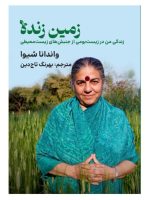
Amin Maalouf, described as one of the Arab world’s most influential writers, weaves extraordinary tales in his novels, mixing historical events, romantic love, fantasy, and imagination. Yet at the core of all these well-crafted works lies a deep element of philosophical and psychological inquiry into the nature and condition of contemporary man. A Lebanese writer who lives in France and writes in French, Maalouf explores fundamental problems of identity, the pressures of religion and nationality, and the concerns and values of different cultures in the Middle East, Africa, and the Mediterranean world. He frequently probes the clashes between East and West. In May 2002, Le Figaro Littraire wrote, “Les origines et la culture orientales parfaitement intgres aux traditions occidentales font de Maalouf un crivan francais singulier. (Oriental origins and culture perfectly integrated into western traditions make Maalouf a unique French writer.)
Born and raised in Lebanon, after receiving a Jesuit education in sociology and economics, Amin Maalouf took up journalism a family tradition. With leading Beirut newspaper Al-Nahar and Jeune Afrique he traveled to Algeria, Bangladesh, Ethiopia, India, Kenya, Somalia, Vietnam, and Yemen. When the Lebanese civil war broke out, totally destabilizing his homeland, Maalouf, his wife, and three children emigrated in 1976 to Paris, where they have lived ever since.
In France Maalouf continued his career in journalism, writing for Al-Nahar Arabe et International and Jeune Afrique, where he later became editor-in-chief. But with the success in 1983 of his first work, Les Croisades Vues par les Arabes, he abandoned journalism and took up writing full-time. A resident of Paris, Maalouf spends a part of each year in a small fisherman’s cottage in the Channel Islands where he writes his novels, now translated into more than 20 languages.
In a work of non-fiction published in 1996, Les Identits Meurtrires,Maalouf focused on ideas which reverberate in his fiction. His analysis explores the reasons people kill each other under the banner of religious, ethnic, or racial identity. For him a simplistic single world identity is no longer viable today. In affirming the historic tolerance of Islam, he looks forward to a world in which religion will no longer play a part in individual or national identity. Reflecting on the future of this book he said, May my grandson, growing up and finding it one day by chance on the family bookshelves, look through the pages, then put it back in the dusty corner where he found it, shrugging his shoulders and marveling that in his grandfather’s day such things needed to be said (The Spectator, September 2002).
Maalouf’s novels persistently pursue these questions of religion, nationality, and identity in a world of perplexing cultural diversity. In his many historical novels set in the Middle East, the relationship between past and present, the voyage, the missing volume, memory, and exile are recurrent motifs in these novels redolent of the scents and sounds of earlier centuries. His characters frequently feel displaced, at odds with the beliefs and environments of their times.
In the travels of Leo in L’on l’Africain (1986) Maalouf seems to illuminate his own travels and exile. On leaving Grenada the hero says, It was no longer anything for my family but a vast encampment, hostile and ruined.
In a 1993 interview with Nuit Blanche, Maalouf, described as calm, almost timid, and of extreme courtesy, spoke about the autobiographical elements of Le Rocher de Tanios, winner of the 1993 Prix Goncourt. The autobiographical ingredients emerging from his memory of his Lebanese family, friends, village, and mountain, must not, he says, be taken in a personal, but rather in a collective sense. An exile, Tanios feels himself more and more foreign in the midst of family and friends. For Maalouf Le Rocher de Tanios is a parable of exile. One belongs not only to a culture, a language, a religion, a nation, but to a system of values. The dialog among cultures is of the highest priority. I have always felt the need, he said, to try to establish paths between different cultures. He sees a vision of humanity as fundamentally one and [at the same time] respectful of all differences.
One often-quoted statement by Amin Maalouf: When one has lived in Lebanon, the most important religion that one has is the religion of coexistence.
Works by Amin Maalouf include Les Croisades Vues par les Arabes (1983) The Crusades through Arab Eyes (translated by Jon Rothschild), L’on l’Africain (1986) Leo the African (translated by Peter Sluglett), Samarcande (1988) Samarkand (translated by Russell Harris), Les Jardins de Lumiere (1991) In the Grdens of Light (translated by Dorothy S. Blair), Le Premier Sicle Aprs Beatrice (1991) The First Century after Beatrice (translated by Dorothy S. Blair), Le Rocher de Tanios (1993) The Rock of Tanios (translated by Dorothy S. Blair), Les Echelles du Levant (1996), Les Identits Meurtrires (1998) In the Name of Identity (translated by Barbara Bray), Ports of Call (1999), L’Amour de Loin (opera libretto – 2000), and Le Priple de Baldassare (2000) Balthasars Odyssey (translated by Barbara Bray).
(From: American University Beirut Website)









